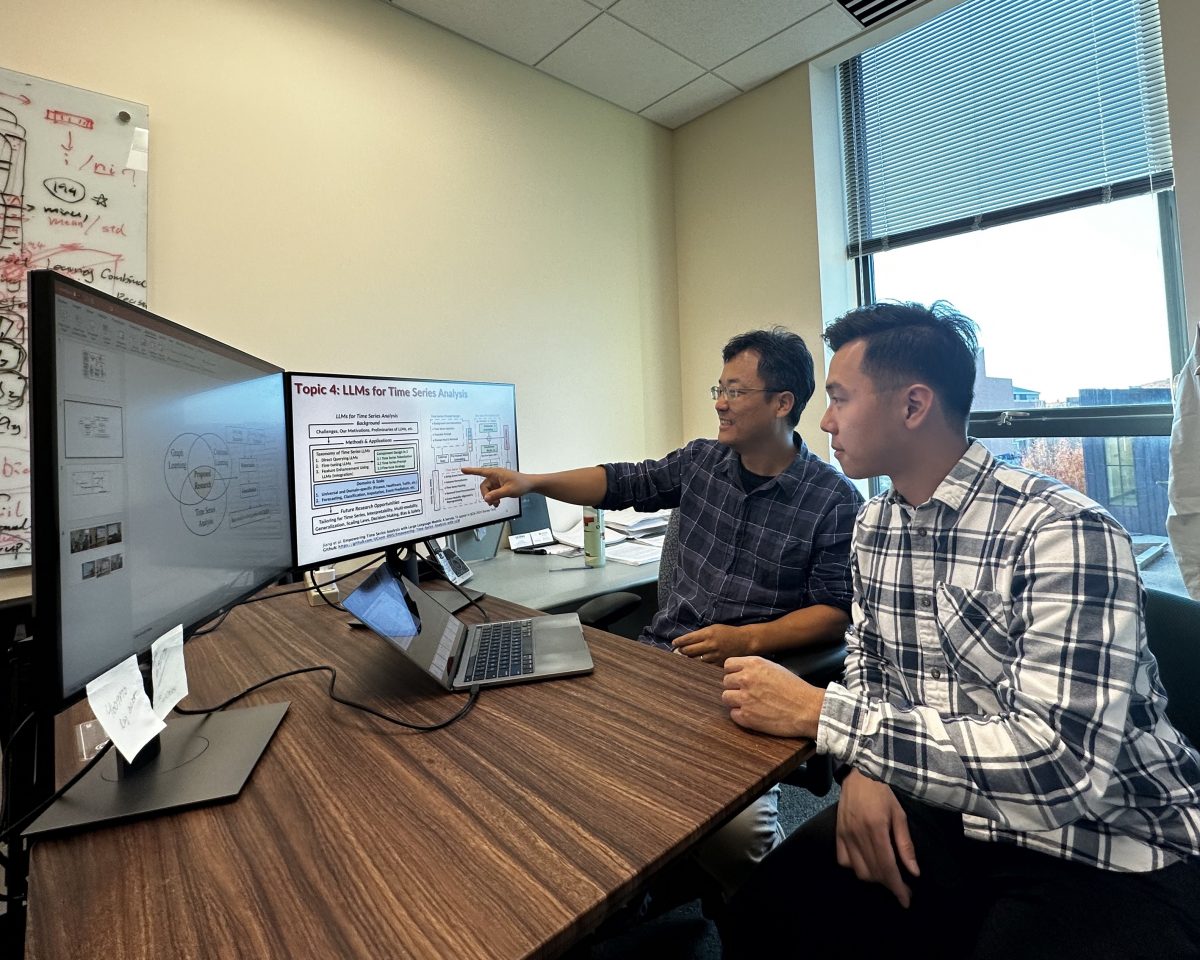
Congratulations to Assistant Professor Dongjin Song from the School of Computing, who has been awarded the National Science Foundation (NSF) CAREER award for his innovative project titled “Continual Learning on Evolving Graphs: from Memorization to Generalization.” This prestigious award is one of the NSF’s most competitive and esteemed awards, aimed at supporting early-career faculty who have the potential to serve as academic role models in research and education.
In the era of big data, information is constantly changing, growing, and evolving, and Professor Song’s research seeks to address this challenge by developing a new machine learning paradigm for “Continual Learning on Evolving Graphs” (CoLEG). His work tackles two core challenges in graph machine learning: memorization and generalization. These aspects are essential for ensuring that AI systems not only retain information over time but also adapt to new, unforeseen scenarios.
Professor Song’s research is at the forefront of machine learning, focusing on the dynamic nature of evolving graphs—networks that continuously change as new data emerges. These graphs represent the underlying structures of many real-world systems, including social networks, healthcare systems, transportation networks, and even renewable energy grids. By developing novel algorithms to understand and predict changes in these structures over time, Song’s work promises to have far-reaching applications in fields critical to society.
A major focus of the project is to resolve the “catastrophic forgetting” problem, a significant obstacle in machine learning where models lose previously acquired knowledge as they learn new information. Song’s approach involves graph sparsification and topology-aware embedding techniques, enabling models to retain essential structural information while learning to adapt to new data. His work also aims to uncover high-order dependencies within evolving graphs, ensuring models generalize effectively to complex, real-world conditions.
A Broader Impact: From Critical Infrastructure to Human Welfare
The implications of Professor Song’s research are vast. His findings could benefit critical infrastructures, such as improving the efficiency and robustness of social networks, transportation systems, and renewable energy networks. Moreover, his work has the potential to improve human welfare by enhancing healthcare and epidemiology models, enabling them to predict and respond to diseases more effectively.
One of the standout aspects of Professor Song’s project is its broad applicability. By providing open-source tools for evolving graph analysis, his research will advance a variety of topics including node classification, link prediction, and temporal forecasting, ultimately improving our understanding of the physical world and enhancing real-world decision-making.
Education, Outreach, and Building the Next Generation of Scientists
Beyond research, Professor Song’s project is deeply committed to education and outreach. His plans include engaging high school students in cutting-edge research and developing outreach programs for K-12 teachers and students. These initiatives aim to broaden the participation of underrepresented groups, particularly female and low-income students, in STEM fields.
Professor Song will also integrate his research into UConn’s curriculum, developing new course modules in data mining, artificial intelligence, and machine learning for undergraduate and graduate students. These efforts will prepare the next generation of computer scientists and engineers to address the challenges of evolving data in real-world applications.
A Vision for the Future of Machine Learning
Professor Dongjin Song’s NSF CAREER award is not only a recognition of his groundbreaking research but also a testament to UConn’s commitment to advancing the frontiers of knowledge. By developing new paradigms in machine learning, Song’s work will pave the way for more adaptable, resilient AI systems capable of learning and growing alongside the evolving world.
As Professor Song continues his research, the University of Connecticut eagerly anticipates the transformative impact his work will have—both in academia and across industries critical to our future.
For more information about Professor Song’s research and the School of Computing at UConn, please visit https://songdj.github.io/